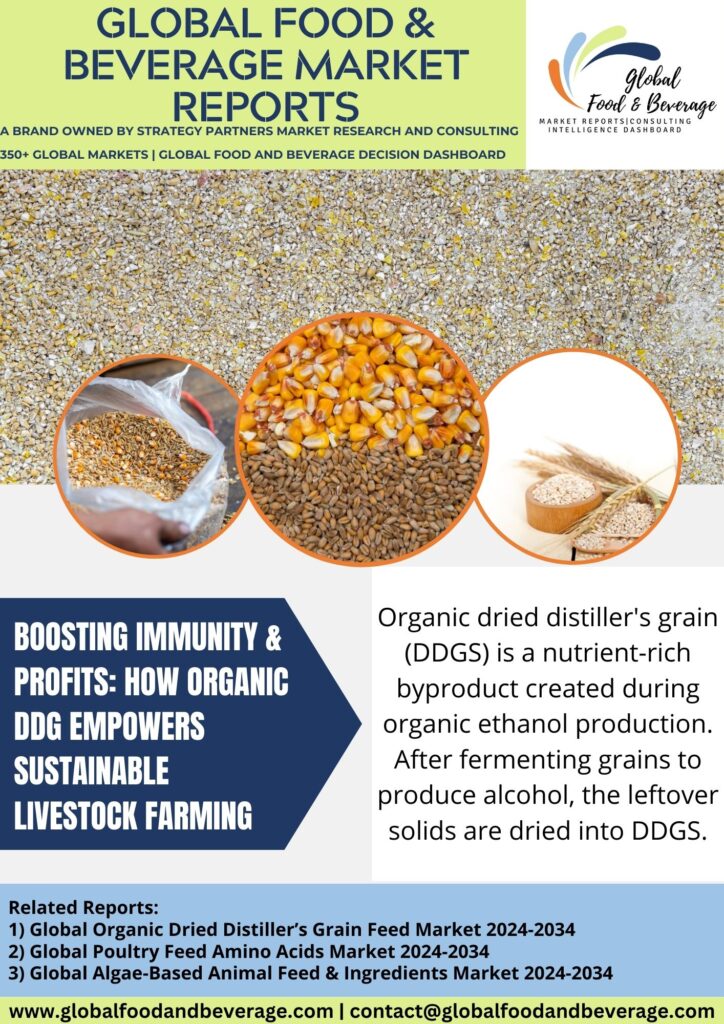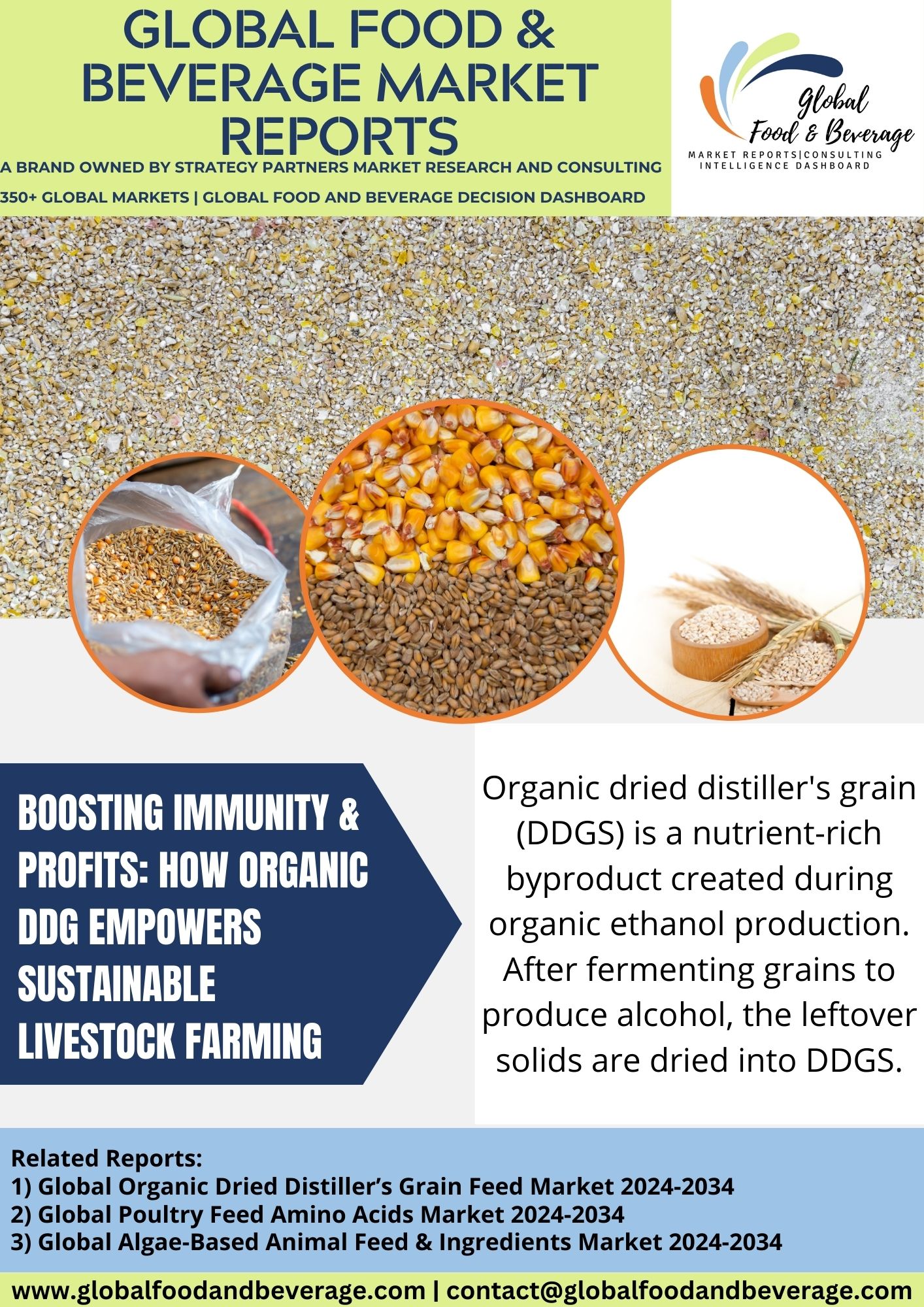Boosting Immunity & Profits: How Organic DDG Empowers Sustainable Livestock Farming

In the swirling world of global feed solutions, a quiet champion emerges: Organic Dried Distiller’s Grain (DDG). No, it’s not some futuristic fuel source, but a humble byproduct of ethanol production, reborn as a sustainable powerhouse for livestock. Forget bland pellets and chemical concoctions; this organic wonder is packed with protein, fiber, and a surprising abundance of nutrients, ready to revolutionize the way we feed the world.
But what makes Organic DDG the MVP of sustainable feed? Imagine corn transformed, its essence distilled into ethanol while the remaining goodness undergoes a metamorphosis. The result? A nutrient-rich goldmine for livestock, boasting protein levels that rival soybeans and a fiber content that keeps digestive systems humming. Think of it as nature’s leftover feast, repurposed into a nutritional bonanza for cows, pigs, and poultry.
The benefits ripple beyond the farmyard. Organic DDG reduces reliance on conventional feed, often laden with pesticides and water-intensive production. It breathes life into fields depleted by traditional feed crops, replenishing soil with precious organic matter. And thanks to its efficient conversion into meat and milk, it minimizes food waste and boosts overall resource efficiency.
But don’t let the sustainability buzzword fool you; Organic DDG delivers on performance too. Studies show livestock thrive on this natural bounty, experiencing improved weight gain, better milk production, and even enhanced immunity. It’s like a silent symphony of optimal health within their bodies, orchestrated by the subtle power of organic goodness.
The global stage applauds this sustainable superstar. From bustling farms in Argentina to sprawling grasslands in China, Organic DDG is making waves. Farmers embrace its cost-effectiveness, environmentalists celebrate its green footprint, and consumers savor the assurance of ethically sourced meat and dairy products. It’s a win-win-win for all, a delicious harmony between profitability, sustainability, and animal well-being.
So next time you bite into a juicy burger or raise a glass of creamy milk, remember the quiet hero behind it. Organic DDG, the champion of sustainable feed, is working its magic, one bite at a time. It’s a revolution brewed in the heart of ethanol production, promising a future where nourishing animals doesn’t cost the Earth. And that, my friends, is a recipe for a world worth celebrating.
ADVANCEMENT:
Organic DDGS is brewing a global feed revolution! Diverse grains, like sorghum, join the party, diversifying nutrient profiles for each critter’s craving. Tech wizards use fermentation to unlock hidden nutrition, making DDGS the tastiest treat in the barn. Sustainability sips into the scene, with minimized water and energy guzzling. Researchers play matchmaker, crafting blends that tickle every poultry peck and piglet slurp. Asia-Pacific leads the charge, gobbling up this nutritious goodie. Smart sensors and AI farm advisors are on the horizon, crafting personalized feed masterpieces. Organic DDGS, once a humble byproduct, is now a sustainable superstar, transforming the global feed landscape, one delicious sip at a time! Cheers to a tastier, healthier future for our feathery and furry friends!
CHALLENGES:
The global production and utilization of organic dried distiller’s grain (DDG) feed face several challenges that span agricultural, economic, and regulatory domains. One significant challenge is the limited availability of organic feedstock for ethanol production, a primary source of DDGs. The organic certification process for crops used in ethanol production may be intricate and time-consuming, impacting the overall supply of organic DDGs.
Economic factors also present challenges, as the cost of producing organic DDGs is often higher compared to conventional counterparts. This cost disparity can limit the affordability and competitiveness of organic DDG feed in the market, affecting its widespread adoption.
Regulatory frameworks add another layer of complexity. The certification and compliance requirements for organic products vary globally, posing challenges for seamless international trade in organic DDG feed. Harmonizing standards and navigating regulatory landscapes are essential for facilitating a smooth and consistent global market for organic DDGs.
Furthermore, the organic DDG supply chain may encounter logistical hurdles, such as transportation and storage, which can impact the overall efficiency and cost-effectiveness of distribution. Ensuring a reliable and efficient supply chain is crucial for meeting the demand for organic DDG feed on a global scale.
In summary, challenges in sourcing organic feedstock, economic viability, regulatory harmonization, and logistics collectively impact the global organic dried distiller’s grain feed industry, necessitating collaborative efforts across stakeholders to address these complexities.
CONCLUSION:
In conclusion, the global organic dried distiller’s grain (DDG) feed industry faces challenges in sourcing, economic viability, and regulatory alignment. To succeed, a focus on sustainable agricultural practices, collaborative supply chain efforts, and advocacy for supportive regulations is essential. Embracing innovation in organic feedstock production and processing methods is key to ensuring a stable supply. By addressing these challenges, the organic DDG feed industry can emerge as a vital player in advancing organic and sustainable practices in animal agriculture, contributing to the overall well-being of livestock and supporting global sustainability objectives.
